CFP for Ring Lecture Proposals for 2024/2025:
Utopia/Heterotopia/Dystopia Theme Utopias and heterotopias cross national, regional, and cultural boundaries and inform many creative expressions in the arts, popular, social and political cultures. They drive technological, social, political and artistic innovation and negotiate horizons of hope. Although they are often based on frustration and disillusion, we ask: What lessons do they teach us about both the past and future, and how can we develop ways to effectively address adversarial positions and strengthen humanistic discourse? We look forward to proposals from diverse GSL scholars
Ring Lecture, Spring 2025, May 23, 2025. Yamada Language Center
Lecture 1: AI Integration and Collaborative Learning in the Utopian, Heterotopian, and Dystopian Future of Language Education

This presentation examines how AI, COIL, and study abroad can transform language education through the lenses of utopia, heterotopia, and dystopia. AI is framed as a tool for personalized, ethical learning; COIL as an intercultural space challenging traditional pedagogy; and study abroad as a lived experience bridging theory and global engagement. Addressing fears around AI’s impact on creativity, the talk proposes a resilient, student-centered model that promotes humanistic learning, equity, and global collaboration in a rapidly changing educational landscape.
Presenter: Jon Dell Jaramillo Ph.D.
Jon Dell Jaramillo, PhD, is a scholar, artist, and educator whose life and work reflect resilience, creativity, and commitment to social justice. His research bridges queer studies, contagion theory, and Latin American life narratives, with an award-winning dissertation titled Viral Bodies. Jon is author of the Queering Translation Manifesto and translator of From the Source by Margarita Moreno Zárate. He teaches with a deep focus on equity, LGBTQIA rights, and global queer liberation.
Lecture 2: From Memory to Algorithm: Technological Mediation of Knowledge in "Ypsilon Minus"
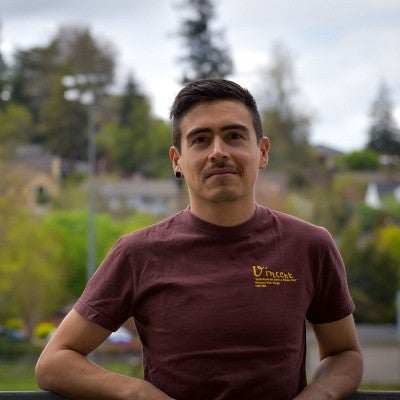
Technological advancements continuously reshape human cognition and knowledge production. Bernard Stiegler conceptualizes technology through hypomnesis, the externalization of memory, which enables humans to construct and preserve cultural learning practices while shaping their engagement with knowledge and identity. However, contemporary digital technologies risk decentering the human subject within these processes.
I will critically examine Herbert W. Franke’s speculative novel Ypsilon Minus through the lens of Stiegler’s analysis, interrogating the implications of technocratic and AI-driven societies. By exploring how speculative fiction engages with technological developments, this research highlights both the dangers and transformative possibilities of technocratic systems, ultimately reflecting on the shifting relationship between human intelligence and artificial systems.
Presenter: Daniel Quintero
Daniel Quintero is a Ph.D. candidate in German Studies at the University of Oregon. His research focuses on the relationship between technology, identity, and memory in German literature, with an emphasis on modernity and its cultural transformations. His dissertation analyzes the technological entanglement of human existence in the novels Homo Faber: Ein Bericht and Ypsilon Minus. His academic interests include 20th-century literature, memory studies, the representation of technology in literature and film, and German multiculturalism.
Previous Lectures 2024
Lecture 1: Andre Djiffack, African Dystopian Brain Drain.
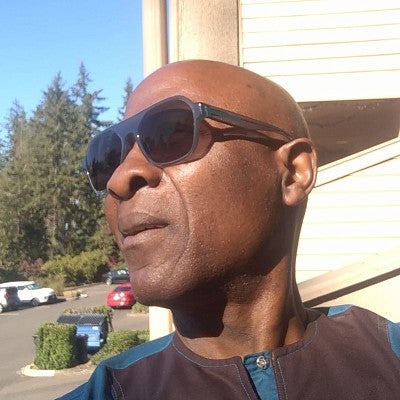
The question of brain drain posed here is not new. To cite just one example on the subject among many others, George Lamming's "The Pleasure of Exile" already exposed, in 1960, the meanders of the migration of artists from Barbados to the London metropolis. Like Frantz Fanon, Lamming restores the essence of master/slave that governs the relationship between the colonizer and his subjects. At that time, Lamming says, the migration of artists and intellectuals from Barbados to England was essentially motivated by the frantic search for the legitimization of colonial power. For the author of "Pleasure of Exile", this frenzied quest for symbolic sanctions is palpable proof of successful colonization.
In this twenty-first century, and although the historical context of analysis is quite different, the mass migration, intellectual or otherwise, from Sub-Saharan Africa to industrialized countries, revives the relevance of Lamming's work. In addition to the search for the anointing of the metropolis that we witnessed yesterday, new parameters are now added:the desire to escape the cruelty of local tyrannies, with their cohorts of brutality; the attractiveness of better working conditions; the dream of personal fulfillment; not to mention the insidious diktat of capital, baptized by the sweet euphemism of globalization
Presenter: André Djiffack
Prof. André Djiffack is originally from Cameroon where he received his Doctorat de 3e Cycle. He did his postdoctoral research in Germany and completed a Ph D in South Africa. He teaches Francophone African literature and culture at the University of Oregon since 2000. His research focuses mainly on Mongo Beti, with the publication of three-volume anthology titled Mongo Beti: Le Rebelle I, II, and III by Gallimard. He is currently finalizing a book manuscript titled Africa of Absurdities: Between Identities and Migrations.
Lecture 2: Yosa Vidal, Utopias in Recent South American Feminist Narratives
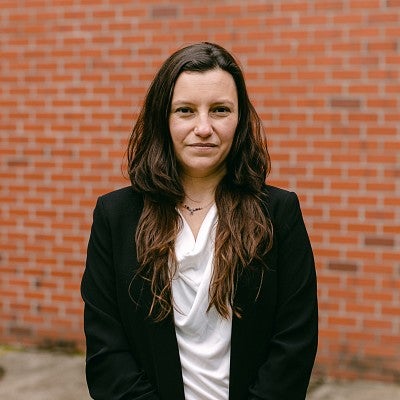
From colonization, when America served as the geographical space in which Europe imagined a geographical and human paradise, to the dream of order and control of a "creole and literate city" (Angel Rama) in the nineteenth century, to twentieth-century leftist revolutionary projects, utopias in Latin America have traditionally projected the desires of hegemonic subjects, whether intellectuals, priests, or political strongmen.In this presentation, I focus on two recent texts that share an idea of utopia as a function (Ernst Bloch) to imagine a post-patriarchal and radically decolonized world. Both authors propose an imagined space outside of the limits of the nation and of loyalties, a "non-place" inhabited by Indian women, whores, and lesbians. "It is time to understand that we do not need rights but utopias. The discourse of rights stupefies us, but utopias wake us up, make us uncomfortable, tickle us, and bring us closer to the impossible, the stubborn, the untamed" says the performer, poet, and political activist Marfa Galindo in her Bastard Feminism (Bolivia 2022). On the other hand, The Adventures of China Iron by Gabriela Cabez6n Camara (Argentina 2017), re-writes Martin Fierro from a feminist and postcolonial point of view as an adventure that culminates in a utopian space - a community that lives in symbiosis with nature and in defense of pleasure.Galindo's poetic/political proposals and Cabez6n Camara's literary fiction call for the dismantling of patriarchal violence at the heart of capitalist society through"anonymous bastards who inhabit cracks, who put down roots in hinges, who live without belonging and who prefer expulsion to submission" (Galindo). This subject does not seek to close meanings, give fixed answers or propose a destination, but to depatriarchalize society through a non-ideological ethical alliance.
Presenter: Yosa Vidal
Dr. Yosa Vidal is Instructor of Spanish, University of Oregon PhD, and an accomplished writer. She researches the relationship between aesthetics, literature, and politics in the Southern Cone. During the last few years she has produced various works of fiction, including Erase otra vez (Feroces Editores, Chile 2011), El Tarambana (Tajamar, Chile 2013, Mármara, Spain 2016), Los multipatópodos (Overol, Chile 2017). Her most recent novel, Vals Chilote, was published in Bolivia by Mantis and in Chile by the Fondo de Cultura Económica (2022).
Lecture 3: Kenneth Calhoon, Savage Places: The Witch-Themed Film as “Crisis Heterotopia.”
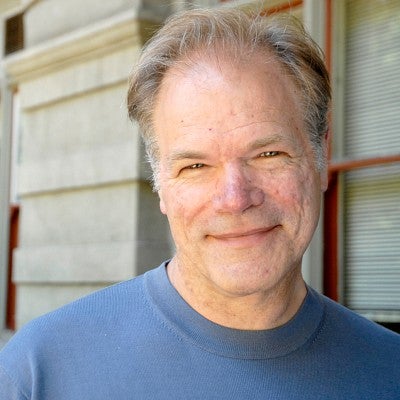
My proposed lecture is part of a current project examining cinema with respect to the aesthetic conventions of landscape. This tradition readily suggests itself to a discussion of utopia, a concept that has often been summoned to illuminate the socio-political import of the idyll, the locus amoenus, and other generic components of literature, painting, garden design, even music. I am interested in the ways in which these dimensions acquire a sharpened relevance for a certain sub-species of the horror genre, namely the "witch-themed" film. The rupture that would spell the end of an approach that cast the natural setting as benign invitation is emblematized by the "deep Romantic chasm" of Coleridge's "Kubla Khan," which affords a portal to what would become a requisite topos of such films -the underneath: "A savage place! as holy and enchanted/ As e'er beneath a waning moon was haunted/ By woman wailing for her demon-lover!" In the ambivalence surrounding the word "holy" we may already detect a precursor to Michel Foucault's understanding of "crisis heterotopias," which he characterizes as "privileged or sacred or forbidden places, reserved for individuals who are, in relation to society and to the human environment in which they live, in a state of crisis: adolescents, menstruating women, pregnant women, the elderly, etc." This description is a close approximation of the scenario of Lukas Feigelfeld's studentfilm titled Hagazussa (2017). The title is an Old High German compound whose etymology adjoins the witch to a wooded enclosure, which is the meaning of the root-word Hag. The hagazussa was the "fence-sitter," that is, a female figure who straddled the divide between society and the wilderness. With a focus on Foucault's discussion, I will analyze Fegelfeld's film alongside two others: The Blair Witch Project (1999) and The Witch (2015).
This will be a standard lecture, with slides and, time allowing,a film clip.
Presenter: Kenneth Calhoon, German and Comparative Literature
Kenneth Calhoon is professor of German and Comparative Literature. His research and teaching interests include literature and the arts of the eighteenth, nineteenth, and early twentieth centuries, as well as film. He is author of three monographs, the most recent of which is The Long Century’s Long Shadow: Weimar Cinema and the Romantic Modern (2021).
Lecture 4: Nathalie Hester, Uchronia and Alternate Empires
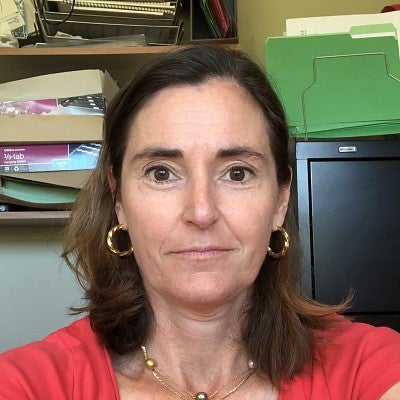
Uchronia, a word formed by analogy to "utopia," signifies an alternate history. This presentation focuses on uchronia in the reception of early modern European colonialism. Pre-modern European expansion prompted the production of a vast array of texts chronicling and legitimizing conquest and Christian conversion. However, some publications offered divergent, deliberately non-historical accounts of European expansion. This presentation looks at representations of the early encounter with the Americas and what can be termed "alternate empires," in which authors of different time periods create imaginary historical episodes that rewrite or disrupt narratives of European navigation and domination. Are these works wishful thinking, escapist art, or expressions of critique and contestation? Baroque Italian epic poetry on Vespucci's voyages and Laurent Binet's recent novel,Civilizations (2019), will serve as anchors for considering the meaning and significance of alternate empires in fiction about early modern global encounters.
Presenter: Nathalie Hester Romance Languages
Nathalie Hester is Giustina Family Associate Professor of French and Italian. She is the author of Literature and Identity in Italian Baroque Travel Writing and the editor and translator of Marie-Gigault de Bellefonds, Letters from Spain: A Seventeenth-Century Noblewoman at the Spanish Royal Court. She has published studies on early modern travel writing, seventeenth-century French and Italian women writers, and Italian epic poetry. She is currently completing a book entitled Inventing America in Baroque Italy: Columbus, Vespucci, and New World Epic, which has been supported by an NEH Individual Fellowship and an Oregon Humanities Center fellowship.
Future Highlights
Jon Dell Jaramillo, Romance Languages: AI Integration and Collaborative Learning in the Utopian, Heterotopian, and Dystopian Future of Language Education
This presentation explores the integration of artificial intelligence (Al) and Collaborative Online International Learning (COIL) in language education through the lens of utopia, heterotopia, and dystopia. These concepts transcend cultural and national boundaries, driving innovation across the arts, technology, and social structures. Al, often viewed as a disruptive force, is reframed as a valuable tool for personalizing language learning and fostering creative engagement, embodying a utopian vision of education. COIL, by contrast, represents a heterotopic space where students from diverse backgrounds collaborate globally, challenging traditional models of learning while fostering intercultural communication. The presentation also addresses the dystopian fears surrounding Al, particularly the concern that it may replace human creativity or devalue language education. Through career-focused study abroad programs and service-learning experiences, students can navigate between these conceptual realms, applying language skills to real-world challenges while preparing for a globalized workforce. Ultimately, the presentation demonstrates how Al, COIL, and innovative study abroad opportunities can help educators address adversarial positions, increase engagement across disciplines, and strengthen humanistic discourse in a rapidly evolving world. This model equips students with the tools they need to thrive in a future where technology and global collaboration are key.
Mark your Calendars
GSL’s Ring Lecture: "Utopia/Heterotopia/Dystopia"
Date/Time: Feb 28, 2025, Noon-1:30. Light Refreshments, Conversations.
Talks:
- Savage Places: The Witch-Themed Film as “Crisis Heterotopia.”
Kenneth Calhoon, German and Comparative Literature - “Uchronia and Alternate Empires”
Nathalie Hester, Romance Languages

